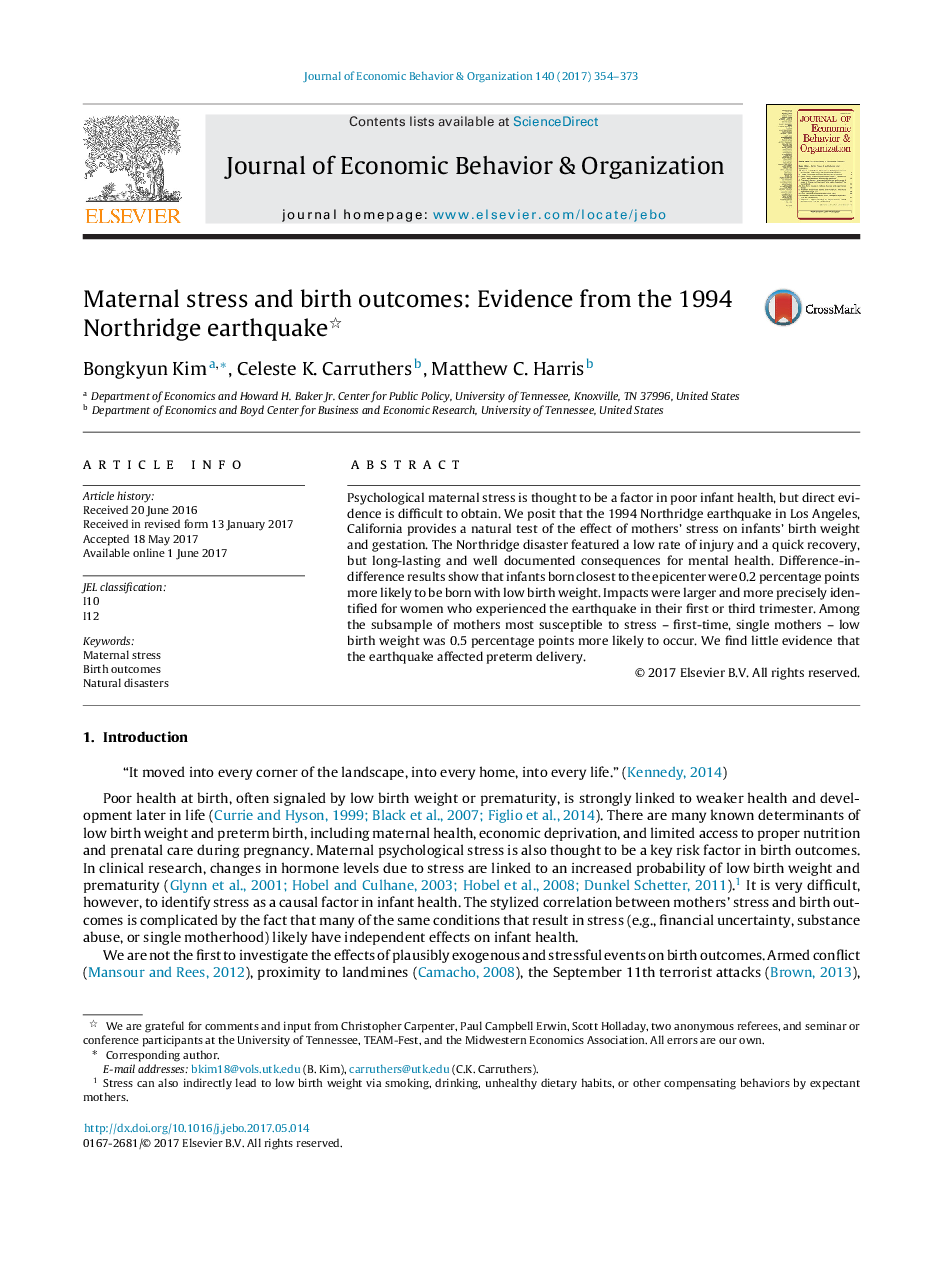| Article ID | Journal | Published Year | Pages | File Type |
|---|---|---|---|---|
| 5034445 | Journal of Economic Behavior & Organization | 2017 | 20 Pages |
Abstract
Psychological maternal stress is thought to be a factor in poor infant health, but direct evidence is difficult to obtain. We posit that the 1994 Northridge earthquake in Los Angeles, California provides a natural test of the effect of mothers' stress on infants' birth weight and gestation. The Northridge disaster featured a low rate of injury and a quick recovery, but long-lasting and well documented consequences for mental health. Difference-in-difference results show that infants born closest to the epicenter were 0.2 percentage points more likely to be born with low birth weight. Impacts were larger and more precisely identified for women who experienced the earthquake in their first or third trimester. Among the subsample of mothers most susceptible to stress - first-time, single mothers - low birth weight was 0.5 percentage points more likely to occur. We find little evidence that the earthquake affected preterm delivery.
Related Topics
Social Sciences and Humanities
Economics, Econometrics and Finance
Economics and Econometrics
Authors
Bongkyun Kim, Celeste K. Carruthers, Matthew C. Harris,
